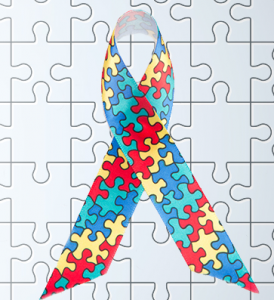Adelphi University helps college-bound students with autism spectrum disorder to get the right tools to meet their needs.
The anxiety that an incoming freshman experiences under typical circumstances can be more profound for a student with an autism spectrum disorder (ASD.) While an ASD student may meet the criteria for college acceptance based on grades and test scores, the larger problem looms in the transition from the protective cocoon of high school. Moving from a small intimate environment to a larger, new academic setting that encourages independence can be a very challenging experience.
 For any student, but particularly those with ASD, to be successful they must feel comfortable, as well as learn time management and executive functioning skills. When choosing the path of higher education, it is important for the student to know what services are required for them to be successful. The attention given to ASD students in high school, through a state-mandated Individual Educational Plan (IEP), will not follow through to college. In college, a student must self-disclose their diagnosis to receive the right support, but not every college or higher education institution has the right tools to meet their needs.
For any student, but particularly those with ASD, to be successful they must feel comfortable, as well as learn time management and executive functioning skills. When choosing the path of higher education, it is important for the student to know what services are required for them to be successful. The attention given to ASD students in high school, through a state-mandated Individual Educational Plan (IEP), will not follow through to college. In college, a student must self-disclose their diagnosis to receive the right support, but not every college or higher education institution has the right tools to meet their needs.
It can be a long process to find the right fit. Adelphi University’s Mitch Nagler, M.A.’06, LMHC, director of the Bridges to Adelphi program—an ancillary service for students on the spectrum—offers this advice:
“Plan a road trip, at least the summer before your senior high school year begins, to look for colleges,” Mr. Nagler said. “For many of these students this is the first time in their lives they plan to be on their own and will have to initiate their own advocacy for service. Students on the autism spectrum [and their parents] should be asking a lot of questions and looking for particular characteristics in a school.” He suggests that students look for the following:
- A school that is welcoming to students with different learning styles. How are students on the spectrum supported to meet their academic requirements? Are they counseled on time management and taught executive functioning? Getting extra help on subject matter is one thing, but taking responsibility for completing assignments on time in their new college environment is something completely different.
- A university with programs for students on the spectrum that also offers social and vocational support. Is there a quiet place for students to just eat their lunch if overwhelmed by the hustle and bustle in food services? Will the college help them get an internship or job placement in a location that is ASD supportive?
- That attention is paid to how students on the spectrum socialize. Will the school offer support groups just for students with ASDs, so they feel more comfortable with those around them? Will they organize outings for ASD students to socialize with each other? Is there a peer mentoring option where an ASD student can partner up with someone at a mainstream event, meaning one that includes all students?
“College students on the spectrum need programs,” Mr. Nagler concludes. “They got a lot of help in grades K–12 and then in college are left to their own devices.”
The Bridges to Adelphi Program at Adelphi University began its unique approach to students on the autism spectrum in 2006—well before the current surge of students on the spectrum seeking out traditional college experiences. This fall the program will have 75 students, in 20 different majors, enrolled. Of the 75 students, 25 are incoming freshman from all over the country, making Adelphi a destination for higher education for students on the autism spectrum. The Bridges program individually assesses each student’s personal issues, strengths and weaknesses in order to design support and services to maximize their college experience.
For further information, please contact:
Todd Wilson
Strategic Communications Director
p – 516.237.8634
e – twilson@adelphi.edu